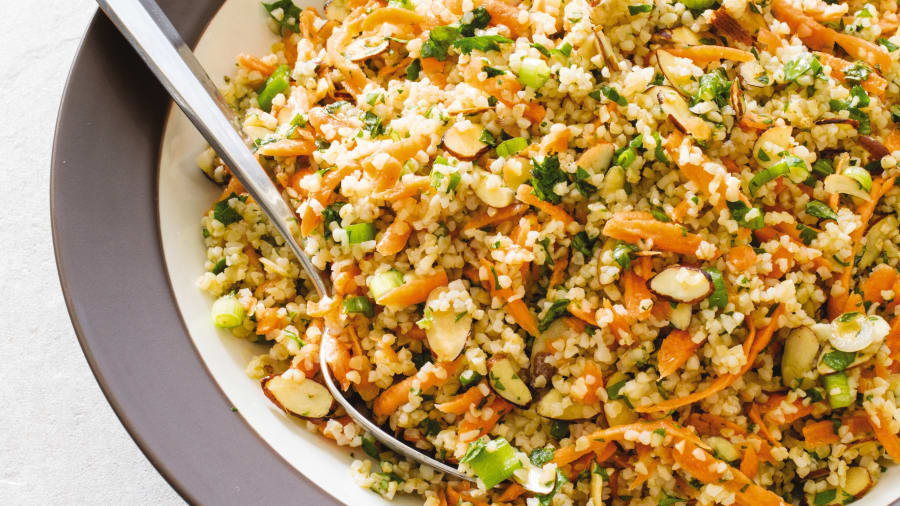The Mediterranean Sea is surrounded by an extraordinarily diverse group of countries: Italy, France, and Spain to the north, Greece, Turkey, Israel, Lebanon, and Syria to the east, and to the south, the North African countries of Egypt, Tunisia, Morocco, Algeria, and Libya. This means that there isn’t a single “diet” that encompasses the entire Mediterranean region—the spice-laden dishes of Morocco bear little resemblance to the lemon and caper-laced cuisine of southern Italy. Rather, the Mediterranean diet is about what these cuisines have in common: a daily emphasis on vegetables and fruits, beans and lentils, whole grains, more seafood than meat and poultry, and heart-healthy olive oil. This is the essence of the Mediterranean way of eating. Below, you'll find an introduction to the fundamentals of the Mediterranean diet.
Get to Know the Mediterranean Diet Pyramid
The Mediterranean diet pyramid was originally developed in the 1990s as part of a collaboration between the Harvard School of Public Health and Oldways, a nonprofit organization whose mission is to inspire good health through cultural food traditions. The pyramid was based on the outcome of the famous Seven Countries Study, which was begun in the late 1950s by an American physiologist named Ancel Keys.
Keys found that the people of Crete tended to have lower incidences of coronary heart disease than participants in other countries, a fact that he attributed to their traditional diet, which was low in saturated fat and heavily reliant on vegetables, grains, and legumes. The Mediterranean diet pyramid paved the way for the diet’s popularity here in the United States, and it is a useful tool for anyone who is interested in eating this way.
The most common elements of Mediterranean meals—fruits, vegetables, grains (mostly whole), olive oil, beans, legumes, nuts, seeds, herbs, and spices—form the base of the Mediterranean diet pyramid. Fish and seafood are prominent elements that are consumed often, at least two times per week. Other foods like poultry, eggs, cheese, and yogurt are consumed in more moderate amounts, daily to weekly depending on the food. Foods like red meat and sweets are consumed with even less frequency and in relatively small quantities in the Mediterranean diet.

Use Meats and Cheeses as Seasonings
Instead of using meats and cheeses as main ingredients, Mediterranean dishes often use them as seasonings. Dishes aren’t drowned in sauce, but instead drizzled with extra-virgin olive oil or a yogurt or tahini-based sauce to add flavor and richness.

